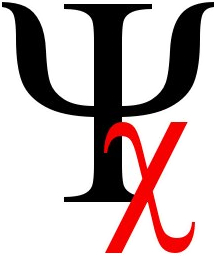E Plūribus Ēditōribus,
Ūnum SpecGramma
From
Over-the-Hill
Under-Editors
Gunther G. Undergruntus and
Gus U. Gussettgossett
As next (deixis alert!) month’s issue comes around, three things can be guaranteed to be occurring in the plush environs of the SpecGram editorial suites, to wit:
- Panic here, there and anywhere as hot-off-the-press zingtastiquissimo articles, puzzles, editorial replies to letters, advertisements and poetry of various types fly in all directions, miraculously, somehow, ending up in neat-’n’-tidy journal-compliant form
- Endless consumption of coffee with biscuit accessoires
- The monthly SpecGram editorial arm-wrestling competition
|
|
 Marc Blancher, 2015, “De l’auteur de jeux de mots aux jeux de mots d’auteur”, in Esme von Winter-Froemel & Angelika Zirker (eds.), Enjeux du jeu de mots, De Gruyter Mouton.
Marc Blancher, 2015, “De l’auteur de jeux de mots aux jeux de mots d’auteur”, in Esme von Winter-Froemel & Angelika Zirker (eds.), Enjeux du jeu de mots, De Gruyter Mouton.
Chiasmus of the Month
May 2021
|
|
|
|
|
‘What’s that?’ we hear you articulate. ‘An arm-wrestling competition for the monthly SpecGram editorial?’ We’ll forgive your incredulity and your near exact paraphrase, for yes, ’tis true: writing the monthly SpecGram editorial is so incredibly, indelibly, indeclinably popular among staff writers that experience has taught us to invoke, on a month-by-month basis, the spirit and practices of the ancient Athenians and their Olympic obsessions to select one SpecGram staff member for the job.
Of course, we use the phrase ‘arm-wrestling’ loosely. In reality, the struggle to earn the honour of writing the coming issue’s editorial might be a Twister competition or a tongue-twister tournament; some jousting, jesting, juxtaposing, juicing, jouncing, or jauncing (as appropriate to the season); affix-hopping, PRO-dropping, tone-falling, level-skipping, or concor-dancing; pronouncing words in reverse, septuple ligature pronunciation, or a spot of gargling (often confused with the septuple ligature pronunciation); or even, as once occurred, a SAMPA-scrawling sambuca-swilling samba-stepping samurai showdown. (What an engrossing example of alliterative escapism that was!) Whatever the competitive means—be it tiddlywinks† to Tai–Kadai transcription, yo-yoing to yod-dropping—there is, inevitably, a need for a narrow-down-that-field competition.
And this should come as no surprise. The staff at SpecGram are not only well remunerated (cars, saunas and shares as part of the salary add-ons) but also highly motivated, striving endlessly to proffer, offer and finally deliver the very best in satirical linguistics. It is a joy to behold as they jostle and tussle for supremacy and the right to write that editorial. No-one should be shocked that there is an—on occasion literal—race for the editorial.
As for us, in order to win the right to pen this editorial and shine a light on the inner workings of Speculative Grammarian, we proposed a more intellectual challenge than many, in several parts:
- Provide a universal a priori definition of language that applies to all known spoken and signed systems of human communication
- Provide a universal definition of word that applies to all known human languages, so defined
- Provide a system of simultaneous classification and reconstruction that operates on languages, so defined, and words, so defined, respectively, that is effective regardless of time depth
- Provide a universal family tree of languages, so defined, using the classification system, so defined
- Provide a list of 300+ roots in Proto-World, using your reconstruction method, so defined
- Decipher the Voynich manuscript, place its language, so defined, into the universal language family tree, so defined, and provide etymologies back to Proto-World, so defined, for all words descended from the 300+ roots in Proto-World, so defined
The more erudite readers of SpecGram may have begun to get a bit animated at the prospect that our submission to such a challenge, having won over all other comers, must represent a real breakthrough for the Science of Linguistics. We advise you not to get too excited until you read our fairly succinct submission:
- There are exactly three languages: English1 as spoken by Gunther G. Undergruntus, English2 as spoken by Gus U. Gussettgossett, and Not English.
- Words are defined as tokens separated by spaces and/or punctuation when written, particularly by Gunther G. Undergruntus or Gus U. Gussettgossett.
- Words that are the same in English1 and English2 are descended unchanged from Proto-English, while all other words in English1 and English2 are neologisms. All words in Not English are descended from Proto–Not English unchanged. Proto-World is the unchanged ancestor of Proto-English, and all words in Proto–Not English are nonce corruptions of Proto-World.
- See #3.
- Ignoring proper nouns and italicized foreignisms, there are over 300 words in this essay to this point; all are come into English1 and English2 unchanged through Proto-English from Proto-World.
- The Voynich manuscript is written in Proto–Not English, and as such has no systematic etymological connection to Proto-World.
Of course, good reader, this is almost certainly a let-down. How could such tripe have won when duct-taping together a copy of Latin Made Simple and a random book by Merritt Greenberg and Joseph Ruhlen would constitute a better submission?
Therein lies the genius of our plan! We made the challenge proposal above on April 1st, 1971, with a 50-year submission timeline. All of our peers mistook it for une farce du poisson d’avril, but all of the correct paperwork was duly and dutifully filed, and on April 1 of 2021, aged 94 and 103, respectively, we claimed our prize, uncontested.
Totally worth it!
† Tiddlywinks is the favourite ‘sport’ of the Editor-in-Chief. He claims that it is only ‘fair’ that he ‘compete’ with ‘everyone else’ for an editorial spot, but ‘reserves the perquisite’ to choose the ‘method of probation’. It is perhaps unsurprising that he is undefeated at his chosen ‘sport’.

